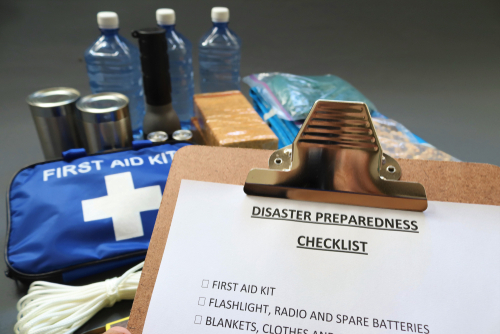There are hundreds of natural disasters every year that impact lives and kill hundreds of thousands of people. For most people in the path of a such a disaster, evacuation is the best choice. For healthcare facilities like hospitals, evacuation won’t work. How can health facilities prepare for natural disasters, if sheltering in place is a necessity?
Invest in Telehealth Options
Natural disasters won’t stop people from needing medical help, but they do make it harder for patients to get to the hospital for treatment in the first place. This is when investing in telehealth can be especially useful. Patients can still talk to their doctor, get medical advice, and receive prescriptions without needing to make the trip to a hospital. Telehealth also gives hospitals the option to support communities other than their own that might be impacted by a disaster, as long as they’re in the same state. Telehealth-certified doctors can only practice in one state at a time.Investing in telehealth options means doctors and nurses can continue to care for their patients without needing them to travel – and, during a natural disaster, travel could be dangerous or even deadly.
Pay Attention to Subsistence Needs
If evacuation isn’t an option, subsistence needs of patients and staff will become a necessary variable to consider. This became a problem in Beaumont, Texas after Hurricane Harvey. The medical facilities had food, supplies and staff to shelter-in-place after the storm, but both of the cities’ water pumps had failed, leaving the hospitals without drinkable water. In the end, hospital officials ended up airlifting all 193 patients to other facilities. Water plays a key role in health care, especially during an emergency.
According to the CDC, the average healthy person needs a minimum of a gallon of water a day. In warmer weather, or for patients undergoing treatments like dialysis will need more than that. The CDC recommends having a two week supply of water for everyone in the facility. This will take quite a bit of storage but it will prevent events like what happened in Beaumont in 2017 after Hurricane Harvey.
Drills for Emergency Plans
They say that no plan survives contact with the enemy, and that goes double for emergency plans to respond to natural disasters. Take the time to drill emergency disaster plans, both for evacuation and for sheltering in place. Ensuring hospitals have all the supplies they need and backup generators are operating properly is key. Storm-related power outages cost an estimated $20 to $55 billion a year in the United States. Doing drills for every shift, day and night, will help staff to know how to respond to disasters and know if everything is operating properly. The staff’s response to an emergency won’t always be perfect, but drills will get them as close to perfect as humanly possible.
Don’t Forget Staffing Considerations
Don’t forget about your staff during a disaster. People who are trapped in the hospital after a natural disaster will be pushed to their limits. They may be undergoing long and intense shifts with little to no sleep, and what sleep they do manage to get during the disaster is broken by alarms and alerts. Take the time to prepare your staff for anything that they might face during a disaster, including long, sleepless nights. Make sure you’re providing adequate breaks and rest opportunities for anyone who will be trapped in the facility throughout the duration of the disaster.
Be Ready for Anything
The most important thing to remember when preparing a medical facility for a natural disaster is to be ready for anything. It’s impossible to know what will happen during a natural disaster until it occurs. Make sure everyone is ready, by carrying out regular drills of emergency procedures and ensuring there is enough water and food to support anyone trapped within the facility during a shelter-in-place emergency.









